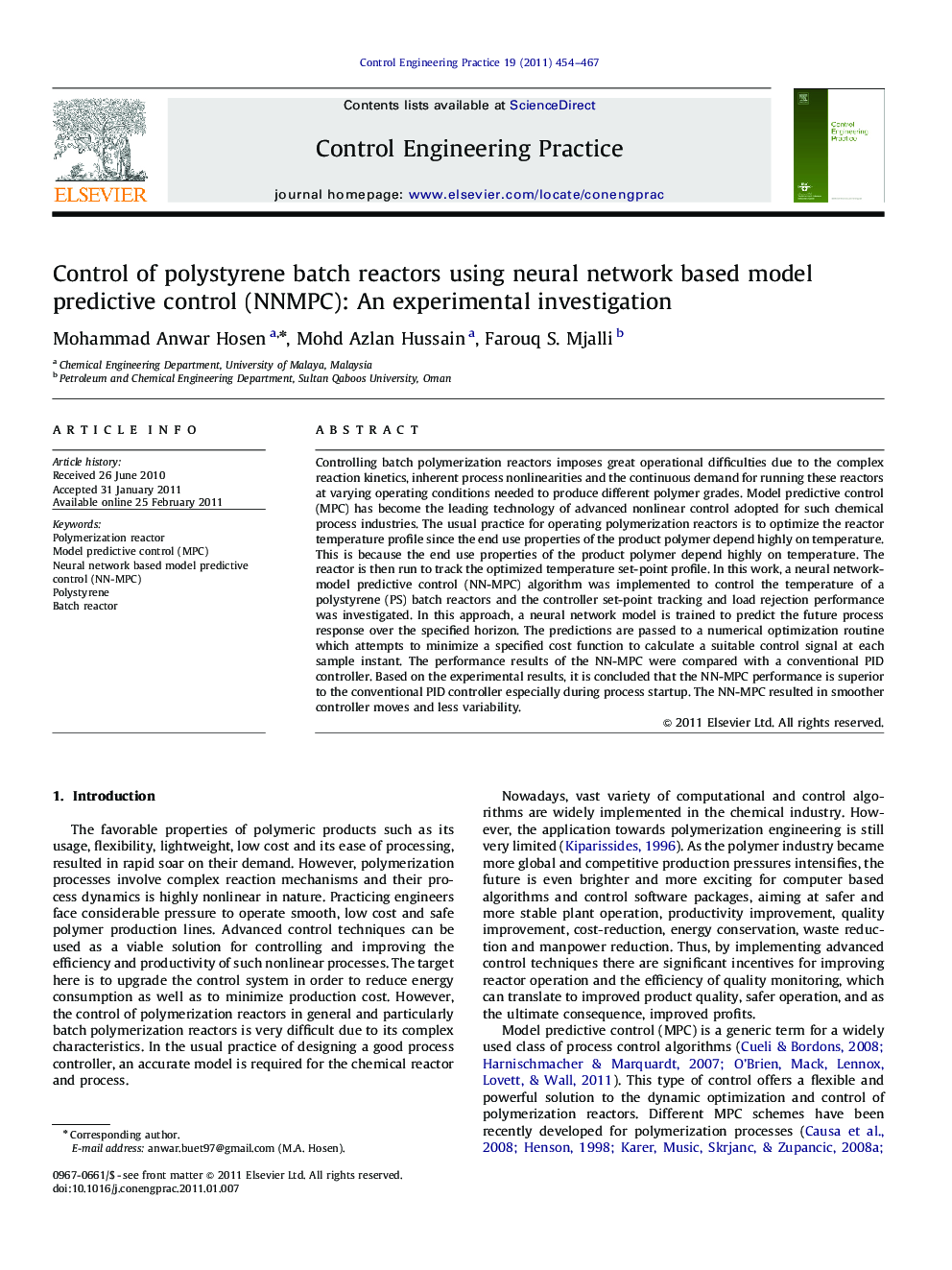| Article ID | Journal | Published Year | Pages | File Type |
|---|---|---|---|---|
| 699172 | Control Engineering Practice | 2011 | 14 Pages |
Controlling batch polymerization reactors imposes great operational difficulties due to the complex reaction kinetics, inherent process nonlinearities and the continuous demand for running these reactors at varying operating conditions needed to produce different polymer grades. Model predictive control (MPC) has become the leading technology of advanced nonlinear control adopted for such chemical process industries. The usual practice for operating polymerization reactors is to optimize the reactor temperature profile since the end use properties of the product polymer depend highly on temperature. This is because the end use properties of the product polymer depend highly on temperature. The reactor is then run to track the optimized temperature set-point profile. In this work, a neural network-model predictive control (NN-MPC) algorithm was implemented to control the temperature of a polystyrene (PS) batch reactors and the controller set-point tracking and load rejection performance was investigated. In this approach, a neural network model is trained to predict the future process response over the specified horizon. The predictions are passed to a numerical optimization routine which attempts to minimize a specified cost function to calculate a suitable control signal at each sample instant. The performance results of the NN-MPC were compared with a conventional PID controller. Based on the experimental results, it is concluded that the NN-MPC performance is superior to the conventional PID controller especially during process startup. The NN-MPC resulted in smoother controller moves and less variability.
